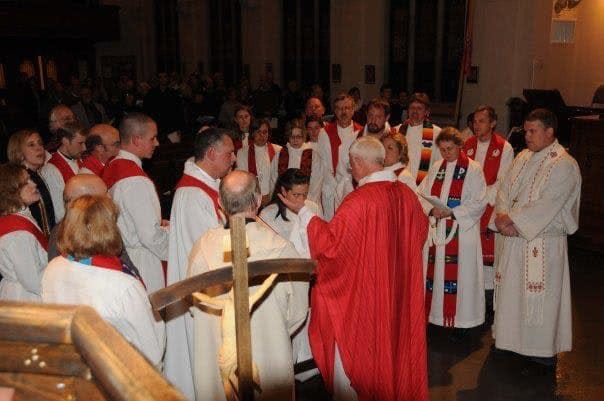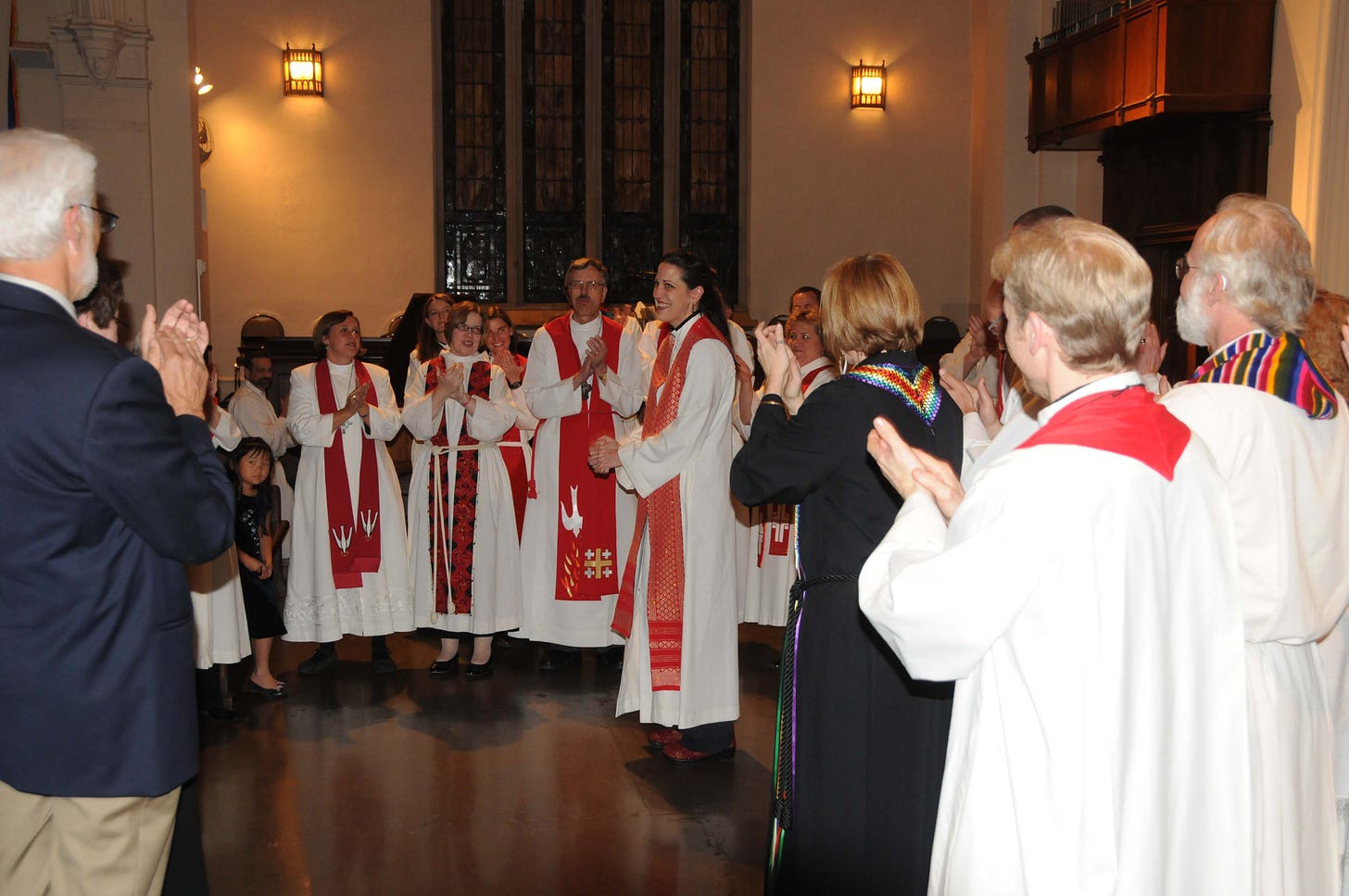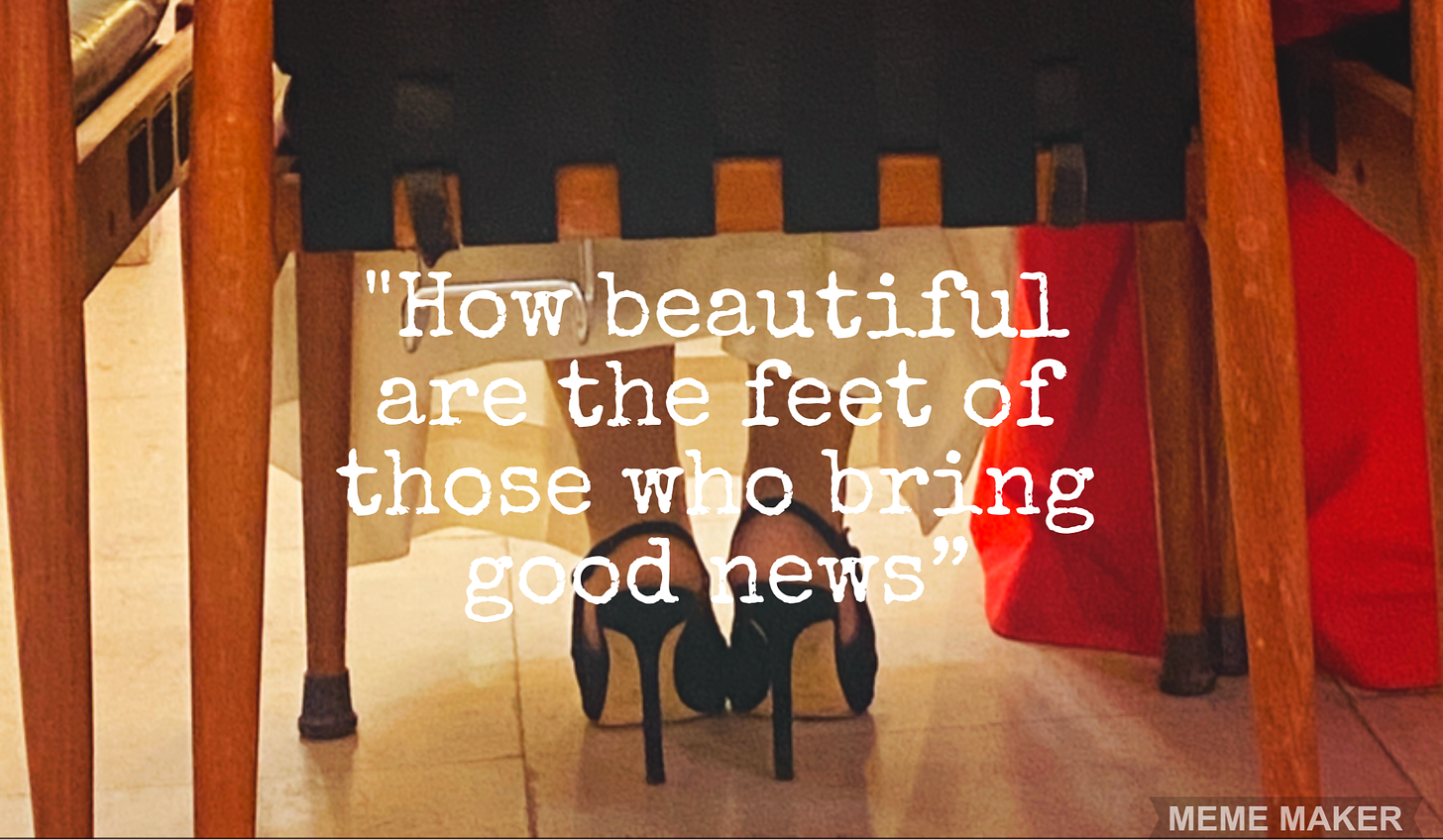Vox Femina
The sanctuary at Central Lutheran Church in Eugene Oregon featured a number of things I had seen before: vaulted ceilings, long narrow stained glass windows, padded pews, and the blonde brick walls favored in the 1960s.
But it also featured something I had never in my entire life seen in a church: a woman up front, leading the congregation in prayer. Like the man standing beside her, she wore a white robe, so I assumed they were both were pastors; I soon learned she was an assisting minister, a lay person. I wasn’t even hearing a woman preach for the first time, or preside at the Eucharist for the first time, I was literally just hearing a female voice in church for the first time in my life and this event is absolutely seared into my memory.
It was 1996, and I was 27 years old.
At the time I was newly married to a Lutheran seminary student doing his internship at a local parish. I was new to Lutheranism but not at all new to Christianity.
For 16 years of my life, my family faithfully attended our Church of Christ three times a week. Sunday morning. Sunday night. Wednesday night. In the Fall of 1996, despite taking an entire decade away from church, I had already attended just shy of 2,500 church services (not counting Bible studies and devotionals in our home, youth retreats and christian summer camps) and then, on the 2,501st, I finally heard a voice like mine, from a body like mine.
I had no way of predicting that 12 years later I would be ordained to the office of Word and Sacrament, and that my own female voice would eventually preach the Gospel from pulpits all over this world.
I cannot say when exactly I first thought that maybe I could see myself leading a congregation in worship, but whenever that thought took root, it did so in soil pressed down in me that day in Oregon when I very first heard a woman lead us in congregational prayer.
Much has been said about the importance of representation for children and how critical it is to see people who look and sound like them in every possible office and role in life. In a single generation we have seen the first Black president, the first woman of color as Vice President, the first female astronaut, the first openly gay Governor, the first Muslim congresswomen, the first female Presiding Bishop, the first Transgender man ordained in the ELCA, the first Asian-American Academy award winners - every one of them possibility models for young people who look and sound like them.
And obviously women now inhabit careers and hold offices that were held only by men up until a generation ago: in government, medicine, law, business, and beyond. But here’s the thing - there aren’t courtrooms in this country where women are not allowed to argue cases because of our gender. There aren’t hospitals forbidding women to practice medicine. But good Lord are there houses of worship everywhere from whose pulpits women are not permitted to preach. And what, exactly, does that say to all the little girls sitting in those padded pews?
I mention this because in January I got to witness an astoundingly hopeful thing: the first ordination of a Palestinian woman in the holy land.
(I sat right behind her at Church of the Redeemer in old city Jerusalem and took this shot:)
How beautiful are the feet of those who bring good news (Romans 10:15), and how beautiful their voices.
Below is a very short video I took. I invite you to listen to the words of institution, spoken in Arabic, and in the voice of the Rev. Sally Azar.
Click here to view if you can’t get the video to play
May God protect Rev. Azar, as she lives into her calling to the office of word and sacrament in such a heavily patriarchal place. May young girls playing in the pews at worship hear a voice that sounds like theirs, in a language that is theirs, in a church that is theirs. May they hear in their sacred imagination the sound of the first preacher, Mary Magdalen, saying “he is risen”. And may those girls grow to lead us all.
Amen.







Ok - sorry about that, folks...I posted a link to click so you can see the video. For some reason it's isn't playing within Substack *shakes fist in the air*.
Growing up, my parents loved to tell the story about the day that someone prophesied about my baby brother. I was probably 7 or 8 at the time, and the story was always told with shiny things like "word of wisdom" and "someone at a prayer meeting saw the letters A A and asked if anyone had children whose names begin with A." In this story, my dad piped up and said his kids were named Amanda (that's me) and Aaron (that's my brother who was 2 at the time). And the person with the "word" said that Aaron would be a great minister for the kingdom and that he was anointed or something like that.
I knew enough of what that story was saying: my brother was special and I was not. God cared about my brother enough to tell a perfect stranger something about him. But as the daughter, I wasn't on the list of things God was concerned with.
This planted a deep message to me over time. That I had to work for my messages from God. (And I'm sure a bunch of other weird sibling shit, too.) That I had to tip-toe, follow the letter and always be on alert, lest I miss my moment of mattering.
I read about women preachers, as you shared today, and instinctively become rageful and curious. I wonder if you can belong to Jesus but not to Christianity? What if God has always been just a few steps behind me in this very lonely desert? What if God said my name that day, and not my brother's?